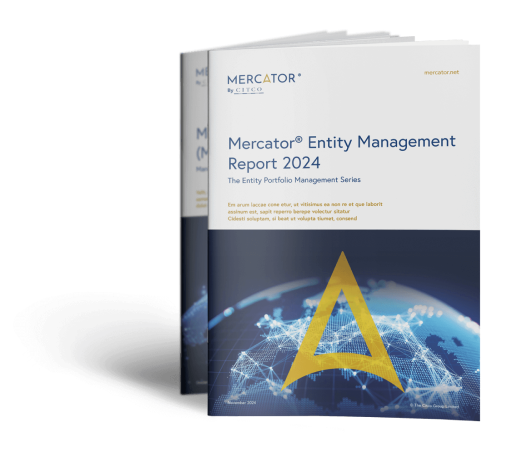The information contained in this document is marketing material and for informational purposes only. The information contained in this document is presented without any warranty or representation as to its accuracy or completeness and all implied representations or warranties of any kind are hereby disclaimed. Recipients of this document, whether clients or otherwise, should not act or refrain from acting on the basis of any information included in this document without seeking appropriate professional advice. The provision of the information contained in this document does not establish any express or implied duty or obligation between Citco and any recipient and neither Citco nor any of its shareholders, members, directors, principals or personnel shall be responsible or liable for results arising from the use or reliance of the information contained in this document including, without limitation, any loss (whether direct, indirect, in contract, tort or otherwise) arising from any decision made or action taken by any party in reliance upon the information contained in this document. © The Citco Group Limited, December 2024.
The Shifting Landscape of Global Entity Management: Key Insights from the 2024 Rankings
In today’s dynamic global business environment, effective entity management has evolved from a mere compliance requirement to a strategic imperative for sustainable growth.
Our fourth annual Mercator Entity Management report reveals significant shifts in the global landscape, highlighting the crucial role of efficient entity management in the success of multinational corporations.
These findings come amid profound global changes, with recent elections affecting half the world’s population triggering shifts across social, political, and business landscapes. Effective entity management now plays a crucial role in driving good governance, enhancing operational efficiency, and mitigating risks in an increasingly complex and changing international environment.
Global developments
One of the most striking finding from our 2024 report is the 48% increase in the global average time required for entity management compared to 2023. This jump underscores the growing disparity between jurisdictions embracing technological solutions and those still relying on traditional, time-consuming processes. It emphasizes the critical importance of digital transformation in streamlining corporate governance and compliance activities.
While we’ve observed a more modest 3% increase in global average costs for entity-related activities, this figure masks significant variations across jurisdictions. Global economic pressures have driven up legal service costs, but technology adoption has simultaneously helped reduce manual work, minimize errors, and generate cost savings.
The evolving regulatory landscape, particularly in areas such as ESG and Ultimate Beneficial Ownership (UBO) requirements, further underscores the need for robust corporate governance frameworks. These are integral to demonstrating a commitment to responsible and sustainable operations—a key consideration for stakeholders and investors alike.
Top and Bottom Performers
Our annual global rankings, based on real-time data from over 180 jurisdictions, reveal Singapore as the top performer in entity management efficiency for 2024. This achievement stems from the city-state’s commitment to creating a business-friendly environment underpinned by advanced digital infrastructure.
Singapore’s success is attributed to its streamlined procedures for entity registration, annual reporting, and compliance filings. The Accounting and Corporate Regulatory Authority (ACRA) provides a centralized online platform that significantly reduces bureaucracy, allowing for quick and cost-effective filings. Key advantages include comprehensive electronic filing capabilities, membership in the Hague Apostille Convention, widespread acceptance of e-signatures, and legal provisions for virtual attendance at meetings.
Contrasting Singapore’s success, Indonesia, Brazil, and the United Arab Emirates rank as the most complex and costly environments for entity management, underscoring the importance of modernizing regulatory frameworks and embracing digital solutions.
The Future of Entity Management
As we look ahead, Singapore’s model provides a blueprint for success in global entity management. Its approach demonstrates that embracing technological innovation and streamlining regulatory processes can create significant advantages and opportunities for both jurisdictions and multinational corporations.
For businesses navigating the complexities of global operations, prioritizing efficient entity management is not just about compliance—it’s a strategic imperative that can drive operational excellence, mitigate risks, and create competitive advantages. As the global business landscape continues to evolve, those who can adapt and leverage effective entity management practices will be best positioned to thrive in an increasingly interconnected world.
The Mercator Entity Management 2024 report aims to equip business leaders and governance professionals with insights and benchmarking data to navigate these global complexities. By understanding the factors contributing to effective entity management, companies can transform compliance from a burden into a strategic advantage.
Kariem Abdellatif
Head of Mercator by Citco, Citco C&T Holdings (Luxembourg) S.à.r.l

